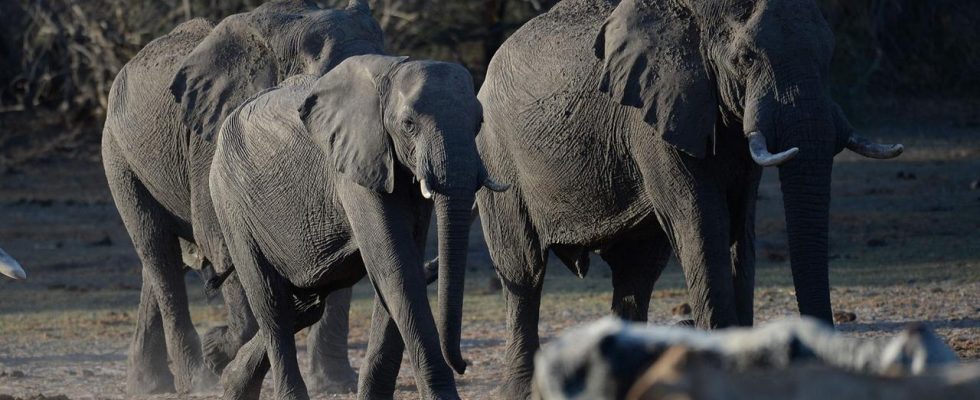Because of the high number of elephants, Botswana has allowed hunting of the animals again. But now there are supposed to be import restrictions for trophies in Europe. Botswana considers this to be neo-colonial paternalism.
Sepako, a small village in northeast Botswana. 200 residents, most of them live in simple huts, there is hardly any running water. Many elephants also live in the region. They regularly wander across the village in search of food and drinking water.
The people in Sepako are poor, many work as day laborers. Like Reginah Paulos’ husband. A thirsty elephant killed him a year ago when he went to fetch water for his employer’s cattle.
Paulos is sad – and angry. “I’ve been feeling bad since I lost my husband. I often get heart palpitations. I miss him so much. The elephants have to go, away from here – and if there’s no other option, then we have to kill them. I hate these animals so much.”
17 deaths in twelve months
Around 130,000 wild elephants live in Botswana. Even for a country twice the size of France, that’s too many, experts say. Conflicts between animals and humans are programmed. Elephants trample fields, devastate villages and are a danger to the population.
Kabo Obonetse works as a wildlife ranger in a safari lodge. He guides tourists through nature. “We keep hearing about incidents like this, about elephants destroying farms, about people being killed by elephants,” says Obonetse. There are simply too many elephants: “The animals are aggressive, they kill people.” There have been 17 deaths in the past twelve months alone.
Import ban on hunting trophies
This is also why the Botswanan government has allowed elephant hunting again. Around 300 animals are allowed to be shot per year. The licenses are in demand. Big game hunters from Europe, Asia or the USA pay a lot of money for it. It is money that is urgently needed in the poor regions of the country.
However, the business model is at risk of being put at risk. For animal and species protection reasons, import restrictions for hunting trophies such as tusks are being discussed in the EU. The federal government is also thinking about it. Belgium has already decided on an import ban.
Neocolonial paternalism?
Botswana, like other African countries, considers this a special form of neo-colonial paternalism. In protest, President Mogkweetsi Masisi recently announced that he would send 20,000 elephants to Germany. “We live here with these animals. And if you don’t want us to regulate our populations, then you have to experience the same thing. Come and visit us!” said Masisi. “I bet none of our critics have ever been to Botswana to understand how we live and how we value our elephants!”
Of course, no elephants from Botswana will be deported to Germany. That was never planned either. With his high-profile threat, Masisi has at least managed to ensure that African arguments are heard in the discussion about species protection.
Ranger Edwin Cejka also believes advice from Europe is unnecessary and points out that controlled hunting of elephants can help preserve animal populations. After all, the government needs money to protect the elephants.
“So it’s more like the elephants have to pay for their survival through sustainable hunting in which people earn money and the animals are protected,” Cejka argues. “Botswana lets private companies document the hunts. This creates jobs for the locals. The Europeans shouldn’t dictate to us what should and shouldn’t happen.”
Stephan Ueberbach, ARD Johannesburg, tagesschau, April 15, 2024 3:42 p.m

